The evolution of dive watches has always been driven by a quest for reliability and convenience, and solar-powered diving watches stand out as a notable leap forward. Blending the ruggedness required for underwater exploration with a self-sustaining power source, they’ve sparked curiosity among divers and watch enthusiasts alike. Are they a fleeting trend, or a practical upgrade worth investing in? Let’s explore their strengths, considerations, and why they’re gaining traction.
What defines a solar diving watch?
At its core, a solar diving watch harnesses light—whether from the sun, indoor bulbs, or even overcast skies—via photovoltaic cells integrated into its design. These cells convert light into electrical energy, stored in a rechargeable battery that powers the watch. Unlike traditional dive watches, which rely on replaceable batteries, solar models eliminate the need for frequent battery swaps, making them both low-maintenance and eco-conscious. Crucially, solar diving watches don’t compromise on dive-specific functionality. They retain all the hallmarks of a professional tool:
- Water resistance: Most offer 200M to 1000M ratings, with robust construction (screw-down crowns, reinforced gaskets) to withstand extreme underwater pressure.
- Unidirectional bezel: A non-negotiable feature for tracking bottom time and ensuring safe decompression stops.
- Luminous displays: High-visibility markers (often using Super-LumiNova or tritium) for readability in murky or low-light underwater environments.
- Durable materials: Cases made from stainless steel, titanium, or ceramic to resist corrosion from saltwater and daily wear.
The advantages: Why solar diving watches shine
1. Sustainability and cost savings
Traditional dive watches require periodic battery replacements, which contribute to electronic waste and ongoing costs. Solar models, by contrast, run on renewable energy, reducing your environmental footprint. Over time, they also save money—no more paying for battery changes or risking water resistance by opening the case to swap batteries.
2. Reliability in remote locations
For divers exploring off-the-grid destinations—think remote islands, deep-sea sites, or multi-day expeditions—a dead battery can be more than an inconvenience; it’s a safety risk. Solar watches thrive here: even indirect light (from a flashlight, campfire, or overcast sky) can keep them charged. Many models include a power reserve indicator, so you’ll always know when to top up.
3. Low maintenance
Divers have enough to manage—checking gear, monitoring air supply, navigating currents. Solar diving watches simplify upkeep: no battery changes mean fewer trips to a watchmaker, and basic care (rinsing with fresh water after dives, wiping down the dial to keep photovoltaic cells clean) is all that’s needed to keep them running smoothly.
4. Versatility beyond diving
Solar technology isn’t limited to underwater use. These watches transition seamlessly to land, charging under office lights, during morning runs, or while hiking. Their rugged design and often sleek aesthetics make them suitable for daily wear, blending functionality with style whether you’re in a wetsuit or a suit.
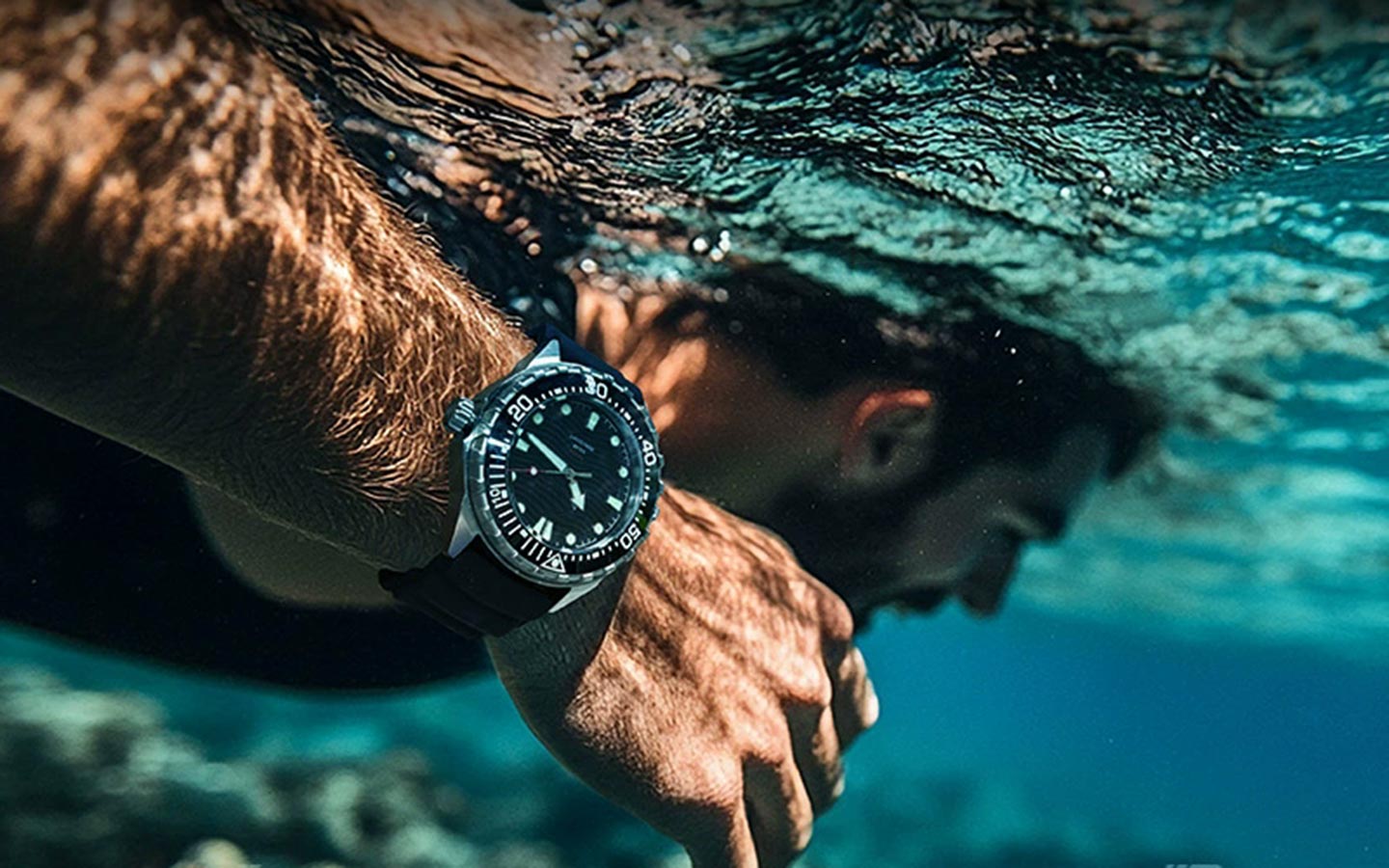
Considerations: What to keep in mind
While solar diving watches offer compelling benefits, they aren’t without trade-offs:
- Upfront cost: Solar technology can make these watches slightly pricier than battery-powered alternatives. However, long-term savings on batteries and maintenance often offset this initial investment.
- Charging efficiency: In prolonged low-light conditions (e.g., week-long deep dives or dark winter months), some models may require intentional charging. Look for watches with efficient Photovoltaic cells and a long power reserve (6+ months) to mitigate this.
- Design constraints: Photovoltaic cells need space on the dial, which can limit design options. However, modern engineering has minimized this issue, with many models integrating cells subtly into the dial’s layout without sacrificing aesthetics.
Who should choose a solar diving watch?
Solar diving watches are ideal for:
- Regular divers: Those who hit the water weekly or monthly will appreciate the low maintenance and reliable power.
- Eco-conscious users: Anyone looking to reduce waste and embrace sustainable tech.
- Adventure travelers: For divers exploring remote areas where battery replacements aren’t feasible.
- Everyday wearers: Those who want a durable, versatile watch that transitions from diving to daily life.
Solar diving watches represent a smart fusion of functionality and sustainability. They address the practical headaches of traditional dive watches—battery changes, waste, and reliability in remote areas—without compromising on the features that matter most to divers. Whether you’re a casual snorkeler, a technical diver, or someone who values a watch that works as hard as you do, solar diving watches offer a forward-thinking solution that’s built to last.
As technology advances, we can expect even more efficient solar cells, longer power reserves, and sleeker designs—solidifying their place as a staple in the dive watch market.
#solarwatch #solardivewatch #solardivingwatch #divingwatchmanufacturer #divingwatch #oemdivewatch

 Home
Home Gezfeel
Gezfeel Aug 22 2025
Aug 22 2025
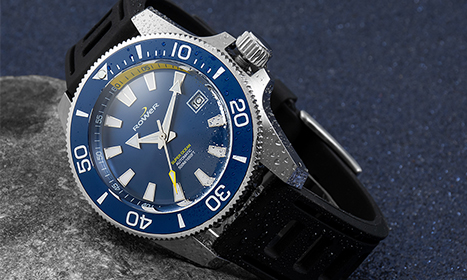
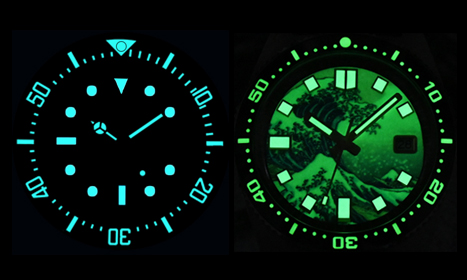
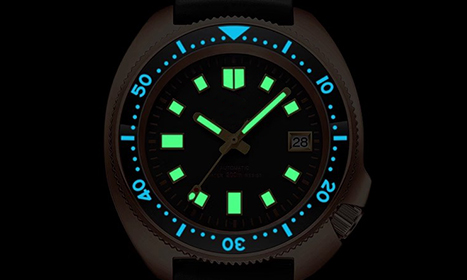
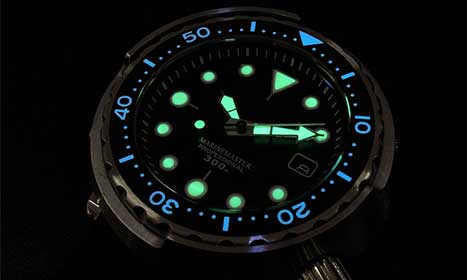



 Address: Room 405, Building A, Qianhai Zhichuang Technology Industrial Park, No.60 Nanchang Road, Nanchang Community, Xixiang Street, Baoan District, Shenzhen, China
Address: Room 405, Building A, Qianhai Zhichuang Technology Industrial Park, No.60 Nanchang Road, Nanchang Community, Xixiang Street, Baoan District, Shenzhen, China

